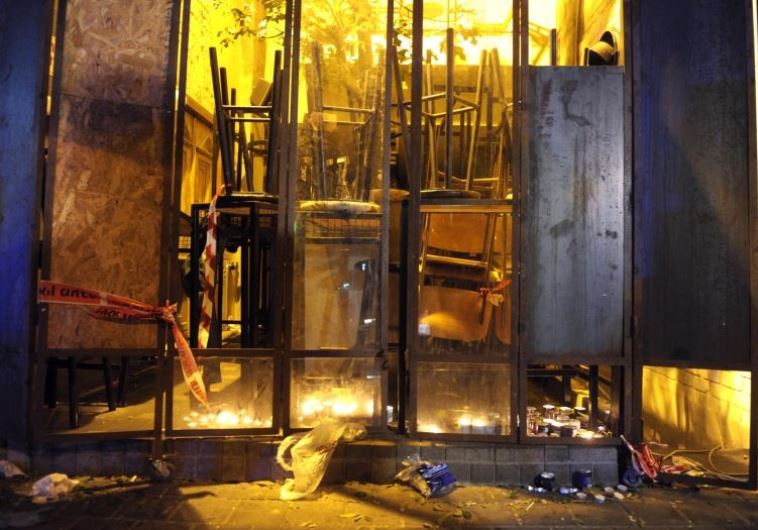Personal weapons
The Tel Aviv shooting attack once again raises the question of the extent of illegally held weapons among Israeli Arabs.
 Scene of the shooting attack at a pub on Dizengoff Street in Tel Aviv on January 1, 2016(photo credit: AVSHALOM SASSONI)
Scene of the shooting attack at a pub on Dizengoff Street in Tel Aviv on January 1, 2016(photo credit: AVSHALOM SASSONI)